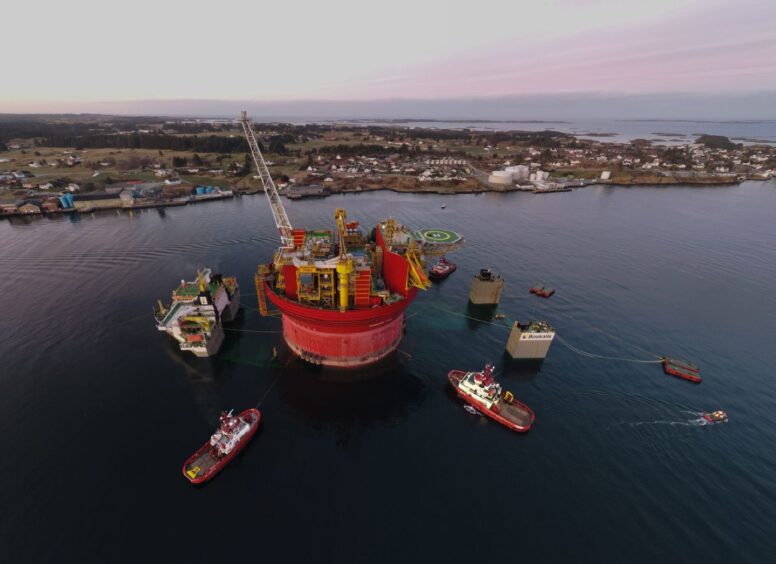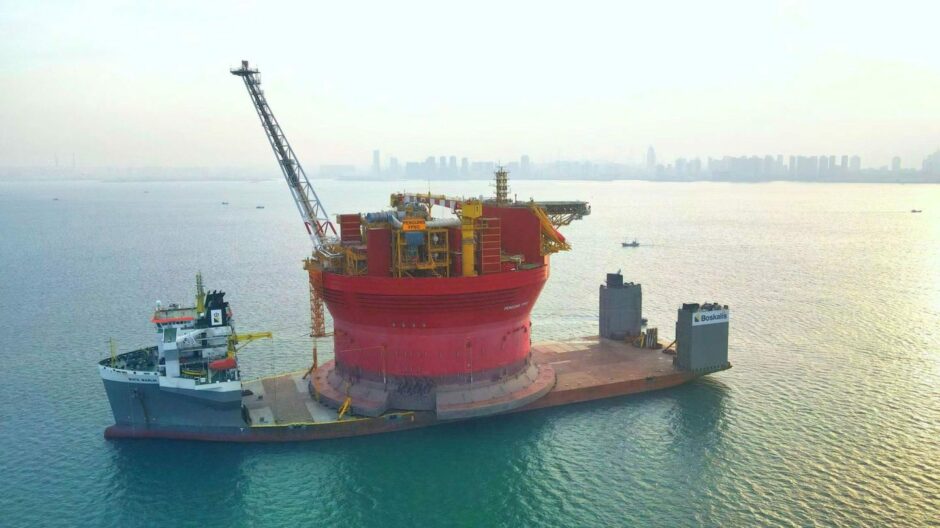
London-listed supermajor Shell (LON: SHEL) has re-started production at its Penguins field with a brand new vessel sharing the same name.
The 100 million barrel redevelopment off the east coast of Shetland is being operated by the first manned vessel built by Shell in three decades.
The Penguins field was initially discovered in 1974. It operated from 2003 and ceased production of oil and gas in 2021.
Sanctioning the project in 2018, Shell said it would unlock 80 million barrels of oil equivalent, create hundreds of jobs, and keep the gas hub producing beyond 2035.
The redevelopment of the Penguins field involved drilling additional wells, which have been tied back to the new FPSO.
Peak production at the site is estimated at around 45,000 barrels of oil equivalent per day (boe/d).
The operator said that gas from the site will be transported to the nearby St Fergus gas terminal using pre-existing pipelines. However, oil from the site will be transported to overseas refineries.
The London-based firm said that the reason for using foreign refineries is the country’s “limited refining capacity” and that the hydrocarbons produced will return in the form of petrol, diesel and other products.
New FPSO ‘more value, less emissions’
Shell claims that the Penguins floating, production, storage and offloading (FPSO) vessel will produce 30% less operational emissions than its recently removed Brent Charlie platform.
Brent Charlie ceased production in 2021 after two decades of operations.
“Today, the UK relies on imports to meet much of its demand for oil and gas,” said Zoë Yujnovich, Shell’s integrated gas and upstream director.
“The Penguins field is a source of the secure domestic energy production people need today, and the FPSO is a demonstration of our investment in competitive projects that create more value with less emissions.”
The Penguins field is operated by Shell, which owns 50% of the site, in partnership with Aberdeen’s NEO Energy which claims the remaining half of shares in the project.
Shell’s stake in the project is expected to be added to a new “Shequinor” joint venture with Norwegian firm Equinor (OSL: EQNR).
Bumpy seas for Penguins FPSO
The Penguins FPSO was constructed by Sevan in China, however, the project was delayed throughout the Covid pandemic as its departure was pushed back from 2021 to 2023.
When the vessel departed for Europe, Greenpeace protestors boarded Penguins while it was off the coast of Morocco.
The six activists spent 13 days occupying the Penguins FPSO as it travelled nearly 2,500 miles before disembarking when it reached Norway.
In November Shell and Greenpeace settled a lawsuit following the occupation.
The supermajor threatened legal action in November 2023 as it claimed Shell and its contractor Fluor suffered a total of $8.6 million (£6.74m) in damages.
As part of the settlement, Greenpeace agreed to pay £300,000 to the Royal National Lifeboat Institution and avoid protesting at the Penguins site for 10 years.
The activist group also agreed to avoid disrupting or travelling within 500 metres of Shell’s Gannet, Nelson and Shearwater fields in the northern North Sea for five years.
Once the vessel arrived in Norway, it remained at the Haugesund yard until it reached UK waters in June 2024.

 © Image: FFluor
© Image: FFluor